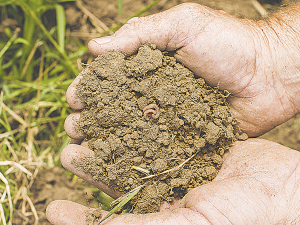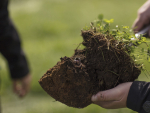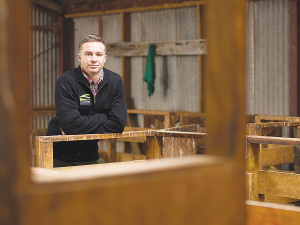A study arising from a partnership with Ravensdown, AgResearch and Ngāi Tahu Farming, has created a benchmark approach to testing the health of soils.
The study, funded by the Our Land and Water National Science Challenge, assessed the quality of soil at Ngāi Tahu Farming sites in Canterbury against a new suite of metrics designed by AgResearch and Ravensdown.
Ravensdown’s chief scientist, Dr Ants Roberts, says the new holistic testing approach provided a greater in-depth analysis of soil health compared with just testing for nutrients at the different sites.
“We developed a suite of tests with AgResearch that gives a more comprehensive assessment of the soil, allows effective long-term monitoring, and can be easily rolled out on-farm,” Roberts says.
“The results give Ngāi Tahu Farming a clear and functional picture of soil health at each site that hasn’t previously been available.”
The study tested samples from five different sites, including forestry and irrigated dairy pasture that had been converted from forestry only a few years prior. The tests evaluated soil fertility, organic matter, soil physical condition, and biological activity.
The study found that a wider range of indicators can help to better understand and manage soils across all pasture systems, to help ensure well-functioning and productive soil.
Roberts says soil health can be difficult to gauge because of the differences across soils, and range of factors that contribute to healthy soil.
“Good soil is the lifeblood of any agricultural practice, but all soils are different. Understanding where to start and what to measure can be difficult.
“You might test phosphorus availability and find that it’s low, but you won’t know that the soil is also compacted, which means nutrients aren’t the full answer to plant production.”
Roberts says the new approach avoids that problem, and Ngāi Tahu Farming’s sites offered the perfect case study to test it.
“Comparing results from the different sites meant we could confirm the method was able to identify the needs of different soils and catch any complexities.
“The results can help Ngāi Tahu Farming develop, model, and implement strategies to improve the soil while avoiding possible adverse effects.”
Dr Nicole Schon, a Scientist in Soil Biology at AgResearch and an author of the study, says the research expertise of AgResearch, combined with Ravensdown’s knowledge of soil fertility and landscapes, led to the innovative testing methodology.
“The tests used in the study give us more fulsome insights into soil health by broadening the way we assess soil wellbeing.
“The wellbeing of soil is important because soils underpin our farming systems. Accurate measuring and monitoring of soils will remain critical to supporting efficient farming methods.”
The collaborative effort looked to evaluate the potential impact of Ngāi Tahu Farming’s current agricultural practices on soil fertility and health and ensure long-term land productivity for future generations.
Ngāi Tahu Farming General Manager Matthew Keen says the study has provided the company with an in-depth assessment and allowed further insight into improving environmental outcomes and enhancing soil health at its North Canterbury sites.
“Building healthy whenua and soil is the backbone to much of the work we are doing at Ngāi Tahu Farming, particularly at Te Whenua Hou Te Whenua Whitiora (The New Land, The New Horizon), where we have committed to rebuild the soil for future land use optionality and protect our wai and mahinga kai gathering sites.
“We believe that measurable scientific solutions, such as those delivered by this study, will provide us with long-term benefits as we continue our work towards achieving a more sustainable farming system.”



















